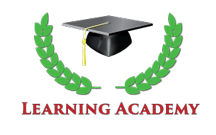
- Description
- Objectives
- Outline
- Materials
- Certification
- System Requirements
- Watch a Demo
Our Drug & Alcohol Counselor Program will provide you with all of the information needed to work with the chemically dependent and addicted. Drug & Alcohol counselors experience the rare chance to change people's lives. There are few accomplishments as rewarding as taking back a life seized by addiction.
Drug and Alcohol Counseling Level 1
Have you ever thought about a career in addiction coaching? Do you feel passionate about helping people reclaim lives that have been deteriorated by drugs or alcohol? Addiction coaching professionals treat individuals who are in need of substance abuse counseling as well as offer peace of mind to the families of persons who are in need of drug addiction counseling. Our Drug and Alcohol Counseling course examines various substance abuse disorders and presents techniques for helping people overcome their addictions.
Prerequisite(s): None
Drug and Alcohol Counseling Level 2
Drug and Alcohol Counseling Level 2 is a comprehensive course for people who want to work with the chemically dependent and addicted in a variety of treatment settings. This course shows the student how to use the best evidence-based treatments available, including motivational enhancement, cognitive behavioral therapy, skills training, medication and 12 step facilitation. Guiding the student step-by-step through treatment, this course presents state-of-the-art tools, and forms and tests necessary to deliver outstanding treatment and to meet the highest standards demanded by accrediting bodies.
Prerequisite(s): Drug and Alcohol Counseling Level 1
** Course Subject to Change.
Drug and Alcohol Counseling Level 1
After completing this course, you should be able to:
- Recall the basics of abuse and addiction
- Differentiate between commonly abused chemicals
- Recognize the various presentations of substance abuse disorder
- Identify substance abuse disorders
- List techniques for treating addiction
Drug and Alcohol Counseling Level 2
After completing this course, you should be able to:
- List the steps for initial assessment and treatment planning
- Recall various therapies and treatment groups available
- Recognize the steps involved in the AA 12 step program
- Identify dual diagnosis and family treatment programs
- Define clinical staff and characteristics of a good counselor
Drug and Alcohol Counseling Level 1
Drug and Alcohol Coaching - Level 1 Module 1
Basics of Abuse and Addiction
- About Substance Abuse
- The Cost of Chemical Abuse/Addiction
- Continuum of Chemical Use
- Pharmacology
- Side Effects of Chemical Use
- Brief History of Alcohol
- Physical Dependence, Tolerance, and Craving
- Alcohol Withdrawal Syndrome
Drug and Alcohol Coaching - Level 1 Module 2
Commonly Abused Chemicals 1
- Medical Uses of the Benzodiazepines
- Central Nervous System Stimulants
- CNS Stimulant Abuse
- Cocaine Abuse & Dependence
- History of Cocaine
- Complications of Cocaine Abuse/Addiction
- Marijuana Abuse & Addiction
- A Medico-Legal Conundrum
- Methods of Marijuana Abuse
Drug and Alcohol Coaching - Level 1 Module 3
Commonly Abused Chemicals 2
- Abuse of & Addiction to Hallucinogens
- Opioid Use
- Methods of Hallucinogen Abuse
- The Pharmacology of LSD
- ECSTASY (MDMA)
- Salvia Divinorum
- Abuse of & Addiction to Inhalants
- Scope of the Problem of Inhalant and Steroid Abuse
- Sources & Methods of Steroid Abuse
- Chemicals & the Neonate
- Tobacco
- Scope of the Problem for Pregnant Women
Drug and Alcohol Coaching - Level 1 Module 4
The Many Faces of Substance Abuse
- Gender & Addiction
- Differing Effects of Common Drugs on Women
- The Faces of Substance Use Disorder (SUD)
- Rehabilitation for Children or Adolescents
- SUD & College Students
- Consequences of SUD in the College Population
- Substance Use Disorders and the Older Adult
Drug and Alcohol Coaching - Level 1 Module 5
Understanding Substance Abuse Disorders
- Substance Use Disorders and the Family
- Codependency
- Enabling Behaviors
- Co-Occurring Disorders
- Biopsychosocial Model of Addictions
- Diseases of the Spirit
- Benefits of Spirituality
Drug and Alcohol Coaching- Level 1 Module 6
The Treatment of Addiction
- Assessment of Suspected Substance Use Disorders
- Diagnosis
- Treatment Settings
- Residential Treatment Programs
- Characteristics of the Substance Rehabilitation Professional
- The Treatment Plan
- Aftercare Programs
- Decision to Seek Treatment
- Stages of Recovery
Drug and Alcohol Coaching - Level 1 Module 7
Other Issues in Chemical Dependence
- Pharmacological Interventions for Substance Use Disorders
- Relapse
- Willpower
- Support Groups to Promote and Sustain Recovery
- Substance Use Disorders and Infectious Disease
- AIDS
- Hepatitis
- Debate over Drugs
- Debate over Legalization
**Outlines are subject to change, as courses and materials are updated.**
Drug and Alcohol Counseling Level 2
Drug and Alcohol Counseling 2 Module 1
Counseling: The Initial Hours
- How Treatment Works
- The Motivational Interview
- Natural History of Addiction
- How to Assess Motivation
- First Hours of Treatment
- How to Greet Clients
- Beginning the Therapeutic Alliance
- Dealing with Early Denial
- How Clients React to Detoxification
- Diagnosis: Substance Use Disorder
Drug and Alcohol Counseling 2 Module 2
Biopsychosocial Interview and Treatment Plan
- How to Conduct the Interview
- Summary and Impression
- Disposition and Treatment Plan
- How to Build a Treatment Plan
- How to Develop Objectives
- How to Develop Interventions
- How to Evaluate the Effectiveness of Treatment
- How to Select Goals, Objectives, and Interventions
- Treatment Plan Review
- How to Write Progress Notes
Drug and Alcohol Counseling 2 Module 3
Individual Treatment and Group Therapy
- The Therapeutic Alliance
- How to Be Reinforcing
- Behavior Therapy
- Cognitive Therapy
- Interpersonal Therapy
- Benefits of a Group Process
- The Agenda Group
- The Relapse Prevention Group
- The Spirituality Group
- The Childhood Group
Drug and Alcohol Counseling 2 Module 4
Drugs of Abuse and Recovery Skills
- Central Nervous System Depressants
- Alcohol
- Opioids
- Hallucinogens
- Synthetic Designer Drugs
- Cannabis
- Nicotine
- The Chemical Use History
- Love, Trust, and Commitment
- Addictive Relationships
- Self-Discipline
- Stress Management
Drug and Alcohol Counseling 2 Module 5
12 Step Program and Lectures
- The Committee
- How to Help Clients Accept a Higher Power
- The Disease Concept
- Defense Mechanisms
- The Great Lie
- Normal Development
- Physical Addiction and Recovery
- Alcoholics Anonymous
- Meetings
Drug and Alcohol Counseling 2 Module 6
Special Problems and Adolescent Treatment
- The Psychiatric/Psychological Assessment
- The Depressed Client
- The Angry Client
- Personalities
- The Borderline Client
- The Narcissistic Client
- The Anxious Client
- Puberty
- Group Therapy
- Peer Pressure
Drug and Alcohol Counseling 2 Module 7
The Family Program and The Clinical Staff
- The First Family Contact
- Common Family Problems
- How to Treat Family Members
- Psychologist/Psychiatrist
- Social Workers
- Nurses
- Staff-Client Problems
- Clinical Staffing
Drug and Alcohol Counseling 2 Module 8
Continuing Care and Good Counselors
- Outpatient Discharge Criteria
- Inpatient Discharge Criteria
- How to Develop a Discharge Summary
- The Discharge Summary
- Aspects of Good Counseling
**Outlines are subject to change, as courses and materials are updated.**
Ed4Career is committed to being both environmentally conscious and making it easier for you to study! We’re making your education mobile! All of our textbooks are now provided as eTextbooks*. You can access them on your laptop, tablet, or mobile device and can study anytime, anywhere.
The move away from physical books to eTextbooks means you get the latest, most up-to-date version available. This also makes your training more accessible, so you can study anywhere you have your phone or tablet. The best part is that all materials are included in your training cost so there are NO extra fees for books!**
*A few courses still have physical materials.
Drug and Alcohol Counseling Level 2
Upon successful completion of our Drug and Alcohol Counseling Level 1 and Level 2 courses, students may be prepared, in part, to sit for licensing and credentialing exams. Each state has its own regulations.** Certification exams are not included in the cost of the course.**
Internet Connection
- Broadband or High-Speed - DSL, Cable, and Wireless Connections
*Dial-Up internet connections will result in a diminished online experience. Classroom pages may load slowly and viewing large audio and video files may not be possible.
Hardware Requirements
- Processor - 2GHz Processor or Higher
- Memory - 1 GB RAM Minimum Recommended
PC Software Requirements
- Operating Systems - Windows 7 or higher
- Microsoft Office 2013 or higher. Also, you could use a general Word Processing application to save and open Microsoft Office formats (.doc, .docx, .xls, .xlsx, .ppt, .pptx)
- Internet Browsers - Google Chrome is highly recommended
- Cookies MUST be enabled
- Pop-ups MUST be allowed (Pop-up Blocker disabled)
- The Kindle Reader App or VitalSource Bookshelf App are needed for many of our courses (No special equipment needed. This can be downloaded for FREE onto your computer.)
- PowerPoint Viewer (if you do not have PowerPoint)
- Adobe PDF Reader
- QuickTime, Windows Media Player &/or Real Player
MAC Software Requirements
- Operating Systems - Mac OS x 10 or higher with Windows
- Mac office programs or a Word Processing application to save and open Microsoft Office formats (.doc, .docx, .xls, .xlsx, .ppt, .pptx)
- Internet Browsers- Google Chrome is highly recommended
- Cookies MUST be enabled
- Pop-ups MUST be allowed (Pop-up Blocker disabled)
- The Kindle Reader App or VitalSource Bookshelf App are needed for many of our courses (No special equipment needed. This can be downloaded for FREE onto your computer.)
- PowerPoint Viewer (if you do not have PowerPoint)
- Adobe PDF Reader
- Apple QuickTime Media Player


